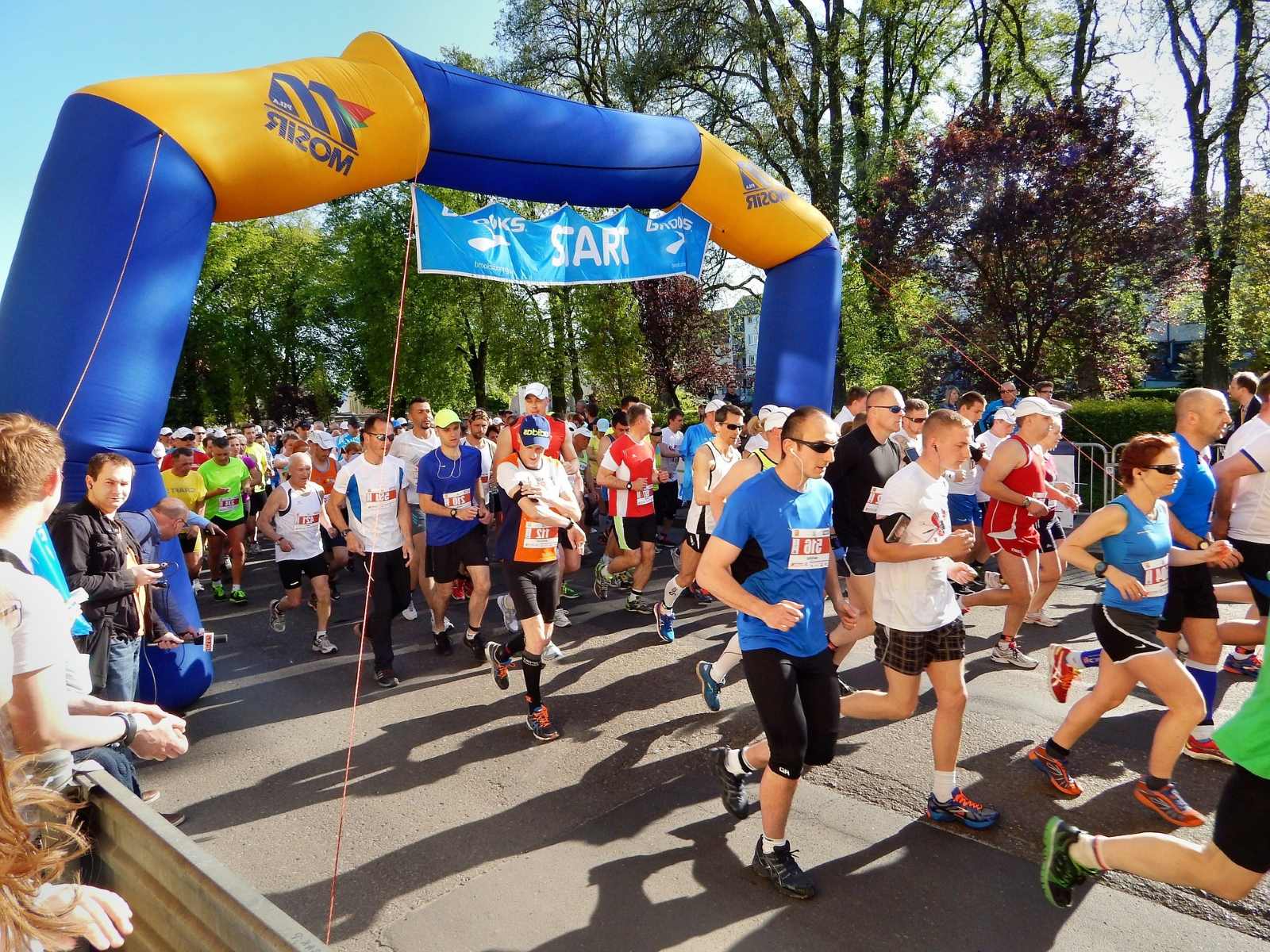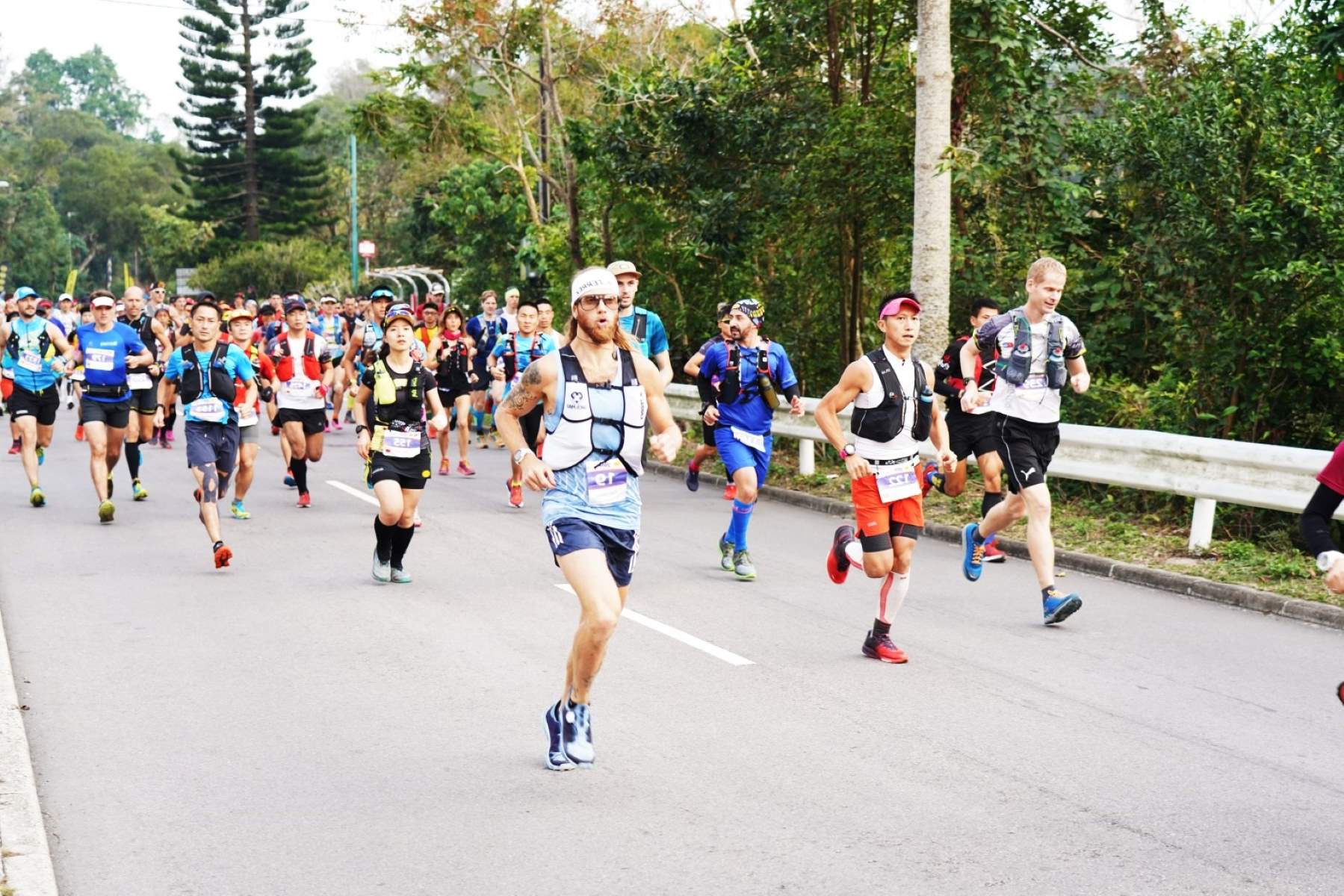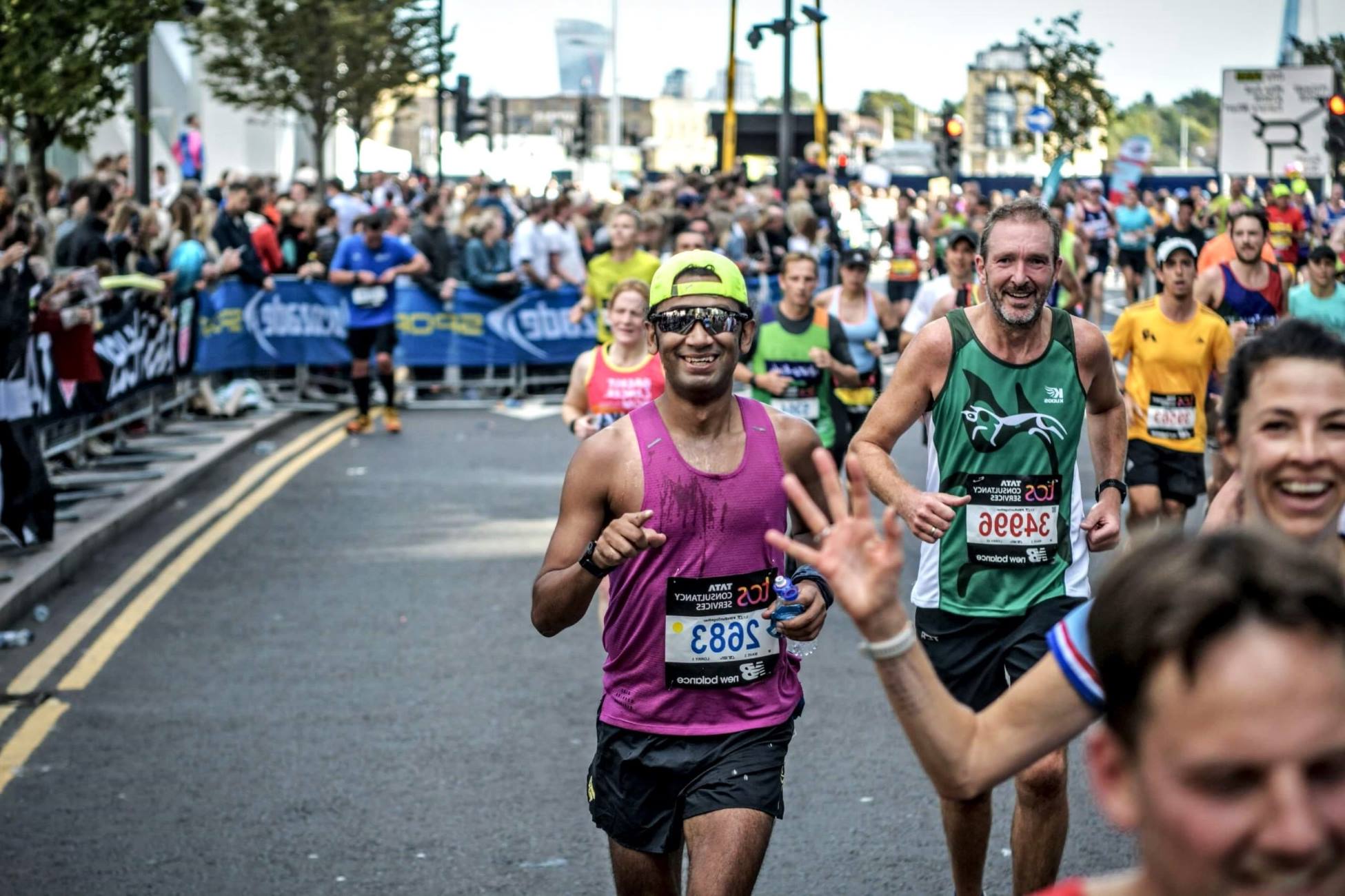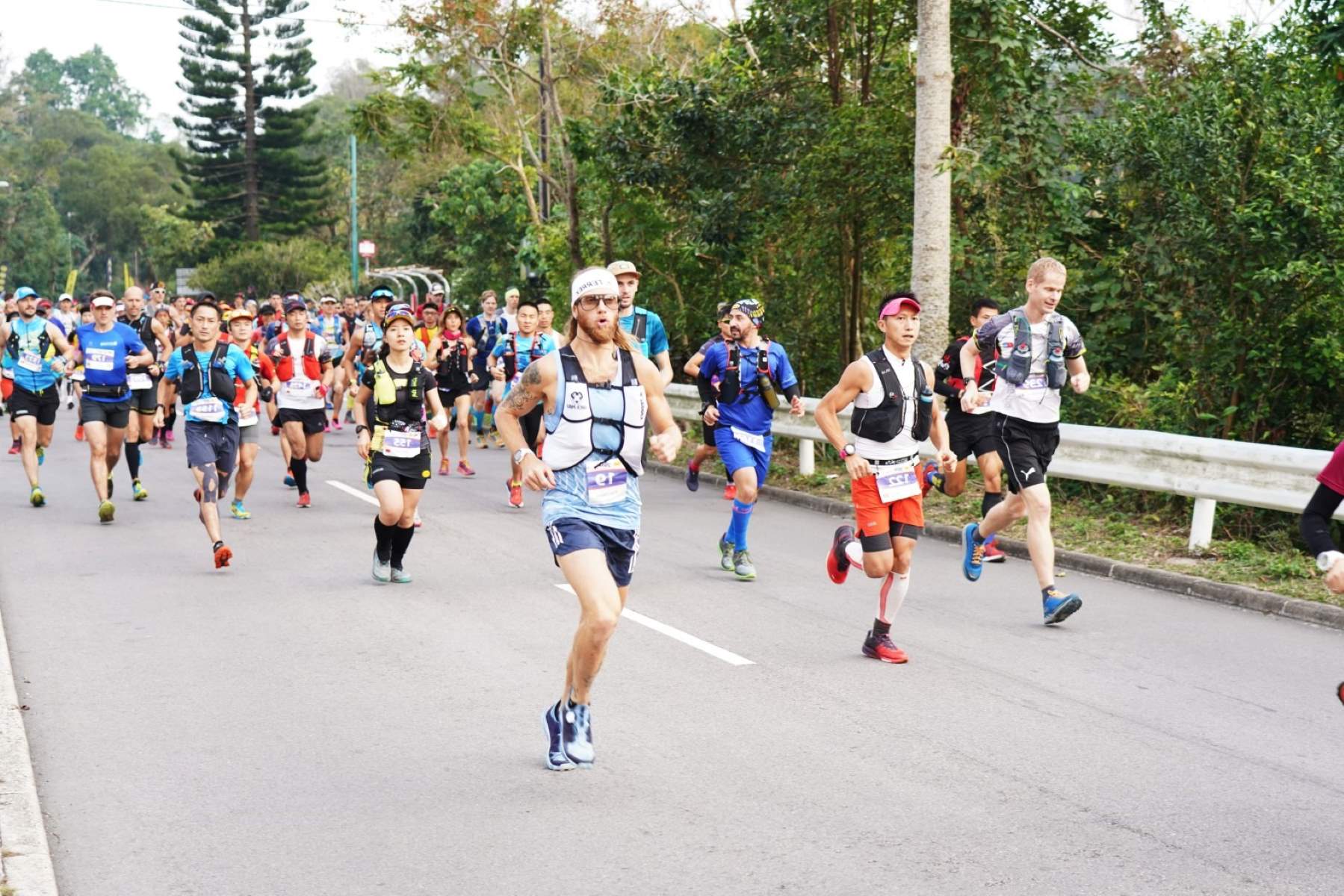Home>Training & Techniques>Training Plans>A Three-Day-A-Week Marathon Training Plan


Training Plans
A Three-Day-A-Week Marathon Training Plan
Published: March 2, 2024
Looking for effective marathon training plans? Discover a three-day-a-week training plan designed to help you reach your marathon goals. Start your journey today!
(Many of the links in this article redirect to a specific reviewed product. Your purchase of these products through affiliate links helps to generate commission for Therunningadvisor.com, at no extra cost. Learn more)
Table of Contents
Introduction
Embarking on a marathon training journey is a remarkable endeavor that demands dedication, perseverance, and a well-structured plan. While traditional marathon training programs often prescribe a rigorous schedule of five to six days per week, a three-day-a-week marathon training plan offers a compelling alternative. This approach prioritizes quality over quantity, allowing runners to achieve their marathon goals while balancing other commitments and minimizing the risk of overtraining.
In this comprehensive guide, we will delve into the intricacies of a three-day-a-week marathon training plan, exploring its benefits, key components, and essential tips for success. Whether you are a seasoned marathoner seeking a more sustainable training regimen or a novice runner preparing for your first 26.2-mile race, this training plan holds the potential to elevate your performance and enhance your overall marathon experience.
By embracing a three-day-a-week training structure, runners can strike a harmonious equilibrium between physical exertion and recovery, a pivotal aspect often overlooked in more demanding training programs. This approach acknowledges the significance of rest and rejuvenation in optimizing performance, thereby reducing the likelihood of burnout and injury. Moreover, it accommodates the diverse lifestyles of individuals, offering flexibility and adaptability without compromising the pursuit of marathon excellence.
Throughout this guide, we will unravel the intricacies of each training day, from long runs and strength training to speed work and flexibility exercises. Additionally, we will delve into the crucial role of nutrition and hydration in sustaining energy levels and supporting recovery during a three-day-a-week training regimen. Furthermore, we will underscore the importance of rest days and recovery strategies, illuminating their profound impact on overall performance and well-being.
As we embark on this enlightening exploration of the three-day-a-week marathon training plan, it is essential to approach this journey with an open mind and a steadfast commitment to embracing a holistic approach to training. By integrating the principles and insights presented in this guide into your marathon preparation, you are poised to unlock your full potential and revel in the transformative power of a well-structured, sustainable training plan.
Benefits of a Three-Day-A-Week Marathon Training Plan
Embracing a three-day-a-week marathon training plan offers a myriad of compelling benefits that cater to the diverse needs and aspirations of runners. This innovative approach to marathon preparation prioritizes quality over quantity, fostering a harmonious balance between physical exertion and essential recovery. By delving into the distinctive advantages of this training regimen, runners can gain valuable insights into how it can elevate their performance and overall marathon experience.
1. Sustainable Training Structure
The three-day-a-week marathon training plan presents a sustainable and manageable structure that resonates with individuals juggling professional, personal, and familial commitments. By condensing the training schedule into three focused sessions per week, runners can optimize their time and energy, mitigating the risk of burnout and fatigue. This sustainable approach empowers runners to pursue their marathon goals without compromising their overall well-being and daily responsibilities.
2. Reduced Risk of Overtraining and Injury
Overtraining and injury are pervasive concerns in marathon preparation, often stemming from excessive physical strain and inadequate recovery. The three-day-a-week training plan strategically integrates rest days and cross-training sessions, minimizing the likelihood of overuse injuries and mental fatigue. This prudent balance between exertion and recovery fosters resilience and longevity, enabling runners to embark on their marathon journey with confidence and vigor.
3. Enhanced Quality of Workouts
By condensing training sessions into three pivotal days, the three-day-a-week marathon training plan emphasizes the quality and intensity of workouts. Each session holds heightened significance, allowing runners to focus on long runs, speed work, and strength training with unwavering dedication and purpose. This emphasis on quality over quantity cultivates physical and mental fortitude, propelling runners toward peak performance on race day.
4. Flexibility and Adaptability
The three-day-a-week training plan offers unparalleled flexibility, accommodating the diverse lifestyles and commitments of runners. This adaptability empowers individuals to tailor their training schedule to align with their unique needs, whether it involves balancing work and family responsibilities or integrating other forms of physical activity. Such flexibility fosters a sustainable and inclusive approach to marathon training, inviting individuals from all walks of life to partake in this transformative journey.
5. Holistic Well-Being
Beyond the realm of physical fitness, the three-day-a-week marathon training plan champions holistic well-being by acknowledging the pivotal role of rest, recovery, and overall balance. This approach transcends the singular pursuit of marathon excellence, nurturing a harmonious integration of physical, mental, and emotional wellness. By prioritizing rest days and recovery strategies, runners can cultivate a resilient and balanced foundation, fostering a profound sense of fulfillment and vitality throughout their marathon preparation.
In essence, the three-day-a-week marathon training plan stands as a beacon of innovation and inclusivity, offering a sustainable, quality-driven approach to marathon preparation. By embracing this training regimen, runners can unlock their full potential, revel in the transformative power of a well-structured training plan, and embark on their marathon journey with unwavering confidence and vitality.
Day 1: Long Run and Strength Training
The first day of the three-day-a-week marathon training plan sets the tone for an invigorating and purposeful week of preparation. This pivotal day is dedicated to two essential components: the long run and strength training. As runners lace up their shoes and embark on this transformative journey, they are poised to embrace the physical and mental fortitude required to conquer the marathon distance.
Long Run:
The long run serves as the cornerstone of marathon preparation, cultivating endurance, mental resilience, and race-specific conditioning. On this day, runners embark on a gradually increasing long run, designed to bolster their aerobic capacity and fortify their physical and mental stamina. As the miles unfold beneath their feet, runners embrace the rhythm of their breath and the cadence of their strides, delving into the depths of their determination and unwavering resolve. Each step propels them closer to their marathon goals, instilling a profound sense of accomplishment and fortitude.
Strength Training:
Following the long run, runners transition into a focused strength training session, targeting key muscle groups essential for marathon performance. This regimen encompasses a diverse array of exercises, including squats, lunges, planks, and resistance training, aimed at enhancing muscular strength, stability, and overall resilience. By integrating strength training into their regimen, runners fortify their bodies against the rigors of marathon running, mitigating the risk of injury and fostering a balanced musculoskeletal framework.
As runners conclude the first day of their three-day-a-week marathon training plan, they are imbued with a profound sense of purpose and determination. The long run and strength training session serve as pillars of strength and resilience, propelling runners toward their marathon aspirations with unwavering resolve and fortitude. With each stride and each repetition, runners inch closer to their marathon goals, embodying the transformative power of a well-structured and purposeful training plan.
Day 2: Cross-Training and Recovery
The second day of the three-day-a-week marathon training plan heralds a pivotal phase focused on cross-training and recovery. As runners transition from the invigorating long run and strength training of the previous day, they embark on a purposeful journey of rejuvenation and holistic conditioning.
Cross-Training:
Cross-training assumes a central role in the training regimen, offering a diverse array of physical activities that complement and enhance the runner's overall fitness. Embracing activities such as cycling, swimming, yoga, or Pilates, runners engage in low-impact exercises that bolster cardiovascular endurance, flexibility, and muscular balance. This deliberate diversification of physical activities not only mitigates the risk of overuse injuries but also cultivates a well-rounded athleticism that augments the runner's performance on race day.
Recovery:
Central to the second day is the emphasis on recovery, a cornerstone of sustainable marathon preparation. As runners engage in cross-training activities, they concurrently prioritize rest, hydration, and nourishment, nurturing their bodies and minds in preparation for the subsequent training days. Adequate rest and sleep, coupled with mindful hydration and nutrient-rich meals, form the bedrock of recovery, enabling runners to replenish their energy stores and facilitate the repair and rejuvenation of their muscles.
The second day of the three-day-a-week marathon training plan encapsulates the essence of balance and restoration, underscoring the profound significance of recovery in sustaining marathon readiness. As runners immerse themselves in cross-training activities and prioritize recovery, they fortify their bodies and minds, laying the groundwork for the forthcoming training sessions with resilience and vitality. This intentional focus on holistic conditioning and rejuvenation epitomizes the holistic ethos of the three-day-a-week training plan, empowering runners to cultivate a sustainable and inclusive approach to marathon preparation.
In essence, the second day of the training plan serves as a testament to the transformative power of restorative practices and diversified training modalities, propelling runners toward their marathon aspirations with unwavering vigor and equilibrium.
Day 3: Speed Work and Flexibility Training
The third day of the three-day-a-week marathon training plan heralds a dynamic and purposeful phase focused on speed work and flexibility training. As runners transition from the restorative practices of the previous day, they embark on a transformative journey of agility, speed, and suppleness.
Speed Work:
Speed work assumes a pivotal role in marathon preparation, honing the runner's ability to sustain pace and endure the demands of race day. This session encompasses a diverse array of high-intensity intervals, tempo runs, and fartlek training, designed to elevate the runner's anaerobic threshold, enhance running economy, and cultivate mental fortitude. As runners surge through intervals and embrace the exhilarating challenge of tempo runs, they harness the transformative power of speed work, propelling themselves toward peak performance and race-day readiness.
Flexibility Training:
In tandem with speed work, flexibility training emerges as a cornerstone of the training regimen, fostering mobility, suppleness, and injury prevention. Embracing a repertoire of dynamic stretches, yoga poses, and mobility exercises, runners cultivate a resilient musculoskeletal framework, mitigating the risk of injury and enhancing their overall range of motion. This deliberate focus on flexibility not only nurtures the runner's physical well-being but also fosters a profound sense of fluidity and grace in their running mechanics, underscoring the holistic ethos of the three-day-a-week training plan.
As runners conclude the third day of their marathon training plan, they are imbued with a profound sense of agility, speed, and resilience. The fusion of speed work and flexibility training propels runners toward their marathon aspirations with unwavering dynamism and grace. With each stride and each stretch, runners inch closer to their marathon goals, embodying the transformative power of a well-structured and purposeful training plan.
In essence, the third day of the training plan serves as a testament to the transformative power of speed work and flexibility training, propelling runners toward their marathon aspirations with unwavering vigor and equilibrium.
Nutrition and Hydration Tips for Three-Day-A-Week Training
Optimal nutrition and hydration are integral components of a successful marathon training plan, particularly in the context of a three-day-a-week regimen. As runners navigate through their training schedule, mindful attention to dietary choices and hydration practices plays a pivotal role in sustaining energy levels, supporting recovery, and fortifying overall well-being.
Balanced Nutrition:
Embracing a balanced and nutrient-dense diet forms the cornerstone of effective marathon training. Incorporating a diverse array of whole foods, including lean proteins, complex carbohydrates, healthy fats, and an abundance of fruits and vegetables, equips runners with the essential nutrients required for sustained energy and muscle recovery. Prioritizing whole grains, such as quinoa and brown rice, alongside lean protein sources like chicken, fish, and legumes, fosters a resilient foundation for marathon preparation.
Strategic Timing:
Strategic timing of meals and snacks is paramount in optimizing energy levels and supporting training sessions. Consuming a balanced meal rich in carbohydrates and protein approximately 2-3 hours before a training session provides the necessary fuel for sustained performance. Post-training, replenishing glycogen stores and facilitating muscle repair through a combination of protein and carbohydrates is essential for recovery and adaptation.
Hydration:
Mindful hydration is a non-negotiable aspect of marathon training, particularly in a condensed three-day-a-week schedule. Adequate water intake throughout the day, coupled with strategic hydration before, during, and after training sessions, safeguards against dehydration and supports optimal physiological function. Integrating electrolyte-rich beverages during prolonged training sessions or in warmer climates aids in maintaining electrolyte balance and mitigating the risk of hyponatremia.
Supplementation:
Strategic supplementation can complement a well-rounded nutrition plan, particularly in addressing potential nutrient gaps. Incorporating essential vitamins and minerals, such as vitamin D, iron, and omega-3 fatty acids, can bolster overall health and performance. However, it is imperative to consult with a healthcare professional to determine individualized supplementation needs.
Recovery Nutrition:
Post-training nutrition assumes a pivotal role in facilitating recovery and adaptation. Consuming a balanced meal or snack containing protein and carbohydrates within the post-training window (approximately 30-60 minutes) accelerates muscle glycogen replenishment and supports muscle repair. Additionally, integrating anti-inflammatory foods, such as turmeric and tart cherry juice, can mitigate exercise-induced inflammation and enhance recovery.
By integrating these nutrition and hydration tips into their three-day-a-week training plan, runners can fortify their bodies and minds, nurturing a resilient foundation for marathon preparation. This intentional focus on balanced nutrition and mindful hydration underscores the transformative power of a holistic and purposeful approach to marathon training.
Recovery and Rest Days
Recovery and rest days are indispensable pillars of the three-day-a-week marathon training plan, serving as vital components in sustaining marathon readiness and overall well-being. These dedicated periods of rejuvenation and restoration play a pivotal role in mitigating the cumulative effects of training, nurturing physical and mental resilience, and fortifying the runner's foundation for peak performance on race day.
During recovery and rest days, runners are afforded the invaluable opportunity to recalibrate and replenish their energy stores, facilitating the repair and rejuvenation of their muscles and central nervous system. This deliberate focus on recovery fosters adaptation, enabling the body to assimilate the physiological stressors induced by training and emerge stronger and more resilient. Moreover, rest days serve as a safeguard against overtraining, mitigating the risk of burnout and mental fatigue while preserving the runner's enthusiasm and passion for the sport.
Embracing recovery and rest days also engenders a profound sense of balance and equilibrium, both physically and mentally. As runners indulge in restorative practices, such as gentle yoga, meditation, or leisurely walks, they cultivate a harmonious integration of physical, mental, and emotional well-being. This intentional focus on holistic restoration nurtures a resilient foundation, fostering a profound sense of vitality and enthusiasm throughout the marathon preparation journey.
Furthermore, recovery and rest days offer an opportune moment for runners to engage in self-care practices that transcend the realm of physical training. Whether it involves indulging in a nourishing meal, spending quality time with loved ones, or immersing oneself in a captivating book, these moments of respite and rejuvenation fortify the runner's spirit and sense of purpose. By embracing a holistic approach to recovery, runners cultivate a profound sense of fulfillment and balance, transcending the singular pursuit of marathon excellence.
In essence, recovery and rest days stand as a testament to the transformative power of intentional restoration and rejuvenation, propelling runners toward their marathon aspirations with unwavering vigor and equilibrium. By integrating these periods of recovery into their training plan, runners fortify their bodies and minds, nurturing a resilient foundation for marathon preparation and embracing the transformative power of a well-structured and purposeful training regimen.
Conclusion
In conclusion, the three-day-a-week marathon training plan stands as a beacon of innovation and inclusivity, offering a sustainable, quality-driven approach to marathon preparation. By condensing the training schedule into three focused sessions per week, runners can optimize their time and energy, mitigating the risk of burnout and fatigue. This approach champions holistic well-being by acknowledging the pivotal role of rest, recovery, and overall balance, nurturing a harmonious integration of physical, mental, and emotional wellness.
Throughout this comprehensive guide, we have delved into the intricacies of each training day, from long runs and strength training to speed work and flexibility exercises. The deliberate fusion of these components cultivates physical and mental fortitude, propelling runners toward peak performance on race day. Moreover, the emphasis on balanced nutrition, strategic hydration, and intentional recovery strategies underscores the transformative power of a holistic and purposeful approach to marathon training.
By embracing a three-day-a-week training structure, runners can strike a harmonious equilibrium between physical exertion and recovery, a pivotal aspect often overlooked in more demanding training programs. This approach acknowledges the significance of rest and rejuvenation in optimizing performance, thereby reducing the likelihood of burnout and injury. Moreover, it accommodates the diverse lifestyles of individuals, offering flexibility and adaptability without compromising the pursuit of marathon excellence.
As runners embark on this enlightening exploration of the three-day-a-week marathon training plan, it is essential to approach this journey with an open mind and a steadfast commitment to embracing a holistic approach to training. By integrating the principles and insights presented in this guide into their marathon preparation, runners are poised to unlock their full potential and revel in the transformative power of a well-structured, sustainable training plan.
In essence, the three-day-a-week marathon training plan offers a myriad of compelling benefits, including sustainable training structure, reduced risk of overtraining and injury, enhanced quality of workouts, flexibility, and adaptability, and holistic well-being. By embracing this training regimen, runners can revel in the transformative power of a well-structured, sustainable training plan, and embark on their marathon journey with unwavering confidence and vitality.











